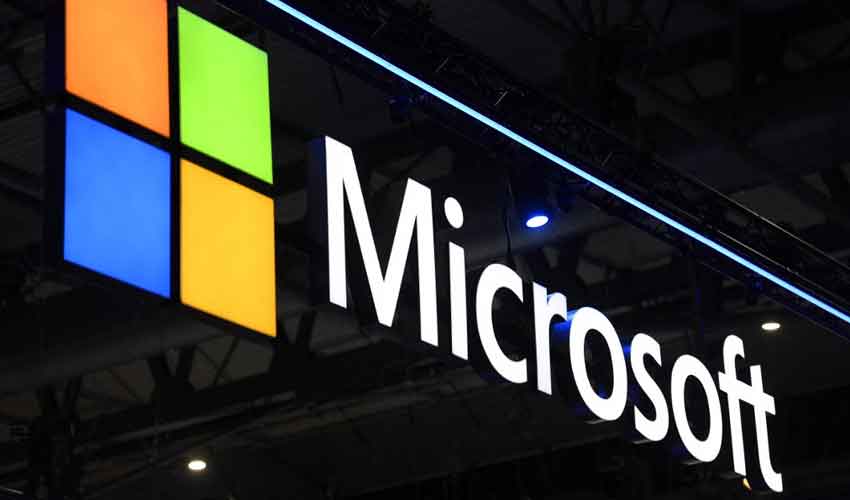📰 Introduction
In a move that surprised many in Pakistan’s tech and business circles, Microsoft has officially closed its liaison office in Pakistan, ending nearly two decades of physical presence in the country. While some have misinterpreted the move as a complete exit, the reality is more nuanced—and deeply connected to both global strategy and Pakistan’s domestic business environment.
This blog unpacks the why, the how, and the what’s next behind Microsoft’s decision.

🧠 The Real Reason: Strategic Realignment, Not Abandonment
Let’s make one thing clear: Microsoft is not abandoning the Pakistani market. Rather, it is:
- Closing its local liaison office
- Laying off five remaining local employees
- Continuing services via regional hubs and local partners
This transition aligns with Microsoft’s global pivot toward a leaner, partner-led model, emphasizing cloud-first and AI-driven operations over traditional, on-premise sales and servicing.
🔄 What Prompted the Decision?
1. Global Workforce Optimization
Microsoft is undergoing a global restructuring, including a ~4% workforce reduction (~9,000 jobs). This includes consolidating operations in smaller markets and closing physical offices where ROI is no longer sustainable.
2. Shift to SaaS and Cloud
The traditional need for localized support diminished with the global success of:
- Microsoft 365
- Azure Cloud
- Dynamics 365
- Copilot AI tools
Since most of these services are now cloud-based, physical office infrastructure is no longer essential in every country.
3. Pakistan’s Economic Volatility
Pakistan has been facing a cocktail of:
- Currency depreciation
- Rising inflation
- Political instability
- Difficulty in maintaining foreign investor confidence
These factors collectively reduce ease of doing business and discourage long-term capital commitments from multinational companies.
📍 Microsoft’s Statement and Pakistan’s Government Response
According to Microsoft and the Ministry of IT & Telecom (MoITT):
“Microsoft will continue its commitment to the Pakistani market via regional support centers and local certified partners. The office closure is purely a structural shift, not an exit.”
The MoITT is actively engaging with Microsoft to ensure local partners, startups, and enterprise clients remain supported during this transition.
🌍 Microsoft Is Still "Here"—Just Not Physically
Despite the closure, Microsoft’s ecosystem in Pakistan remains very much alive:
- Cloud services remain accessible via Microsoft Ireland (EMEA hub)
- Local support continues via authorized resellers and partners
- Microsoft certifications, events, and developer programs are still active
- Pakistani enterprises can still adopt Azure, Copilot, Power Platform, etc.
This transition mirrors what Microsoft has done in other markets like Vietnam, Kenya, and parts of Eastern Europe—minimizing operational overhead while maintaining product availability.
🔮 What This Means for the Tech Ecosystem in Pakistan
For Businesses:
- Continue using Microsoft services—no disruption in product availability.
- Engage certified partners for enterprise support, licensing, and implementation.
For Developers & IT Professionals:
- Upskill in Microsoft’s cloud and AI stack—Azure, Power BI, Copilot, and Fabric.
- Continue participating in Microsoft Learn, MVP programs, and GitHub initiatives.
For Policymakers:
- Recognize the need to improve investor confidence through consistent governance, economic stability, and regulatory clarity.
🧭 Final Thoughts
Microsoft’s office closure in Pakistan should not be mistaken for disengagement. Instead, it's a reflection of:
- Changing business models (cloud-first, AI-centric)
- Global optimization strategies
- Pakistan’s pressing need for economic reforms
The lesson here is twofold:
- Tech companies will continue to serve markets where they see digital growth, regardless of physical presence.
- Countries must build a stable, innovation-friendly ecosystem to retain and attract global technology leaders.
As Pakistan’s startup and developer community matures, the opportunities remain vast—but the playing field is evolving.
💬 Have Thoughts?
If you’re a developer, founder, or business leader in Pakistan, how do you perceive Microsoft’s decision? Is it a sign of decline or transformation?
Let’s start a conversation in the comments or connect on LinkedIn.
